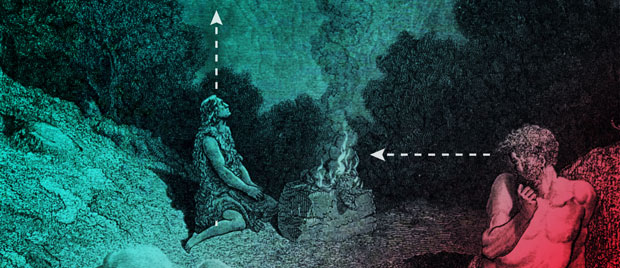
Have you ever wondered why there’s a universal phenomenon of religion? You can go anywhere on the globe and you’ll find evidence of cultic practices of sacrifice. Why is that? I suggest that it is because the original program and prescription for the worship of the living God was sacrifice. Adam told it to Cain, Abel, and Seth. Seth told it to Enoch, and he told it to his sons and they to their sons and so on. It was taught to Abraham. It was taught to Isaac. It was taught to Jacob. It was taught to Joseph. It was taught to Moses. It was also taught to Ishmael and to Esau, and so the idea of the requirement of sacrifice in faith pervaded the whole human race.
But today the need for sacrifices to be made in faith is forgotten—we hear that it doesn’t matter what you believe as long as you’re sincere. In fact, the basic requirement of sacrifice is unknown—it doesn’t matter what your religious practices are. It doesn’t matter what you worship. It only matters that you do worship. It’s said that the Jews worship God in their way, the Muslims worship God in their way, the Buddhists worship in their way. The unspoken assumption is God is obligated to receive, honor, and respect any kind of worship that people bring.
God didn’t respect all of the worship in Genesis 4. He had no respect for the worship of Cain. And Cain responded in anger when he saw that his worship was unacceptable to God. A faithful man, a righteous man, would have said, “O my God. I’m heartily sorry for having sinned against You. Teach me Your statutes, O Lord, show me the more excellent way. Change my heart, so that the offering that I bring You next Sabbath day will honor you. I’m glad, at least, Holy Father, that You were pleased with my brother’s offering. Father, give me an attitude by which I can learn from my brother, because my brother lives by faith and is trying to obey You.” But that was not Cain’s response.
In reality, that is never the response of the godless to the godly. Which of the prophets did they not kill? Which of the reformers in church history was not despised by the organized church? Like Cain, who rose up and slew his brother Abel, wicked churches have spilled the blood of true Christians. In fact, it was the church that rose up to kill Jesus because He did not respect their sacrifices.
No comments:
Post a Comment